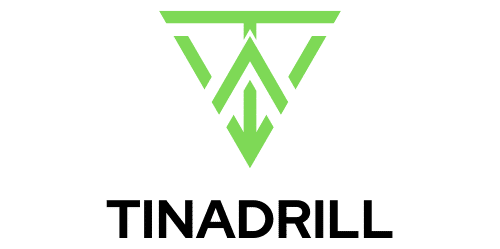How to Implement a Periodized Nutrition Plan for Bodybuilders Pre-Competition?

As athletes delve deeper into bodybuilding, they often focus on weightlifting and other forms of training. However, many overlook the crucial role of nutrition in their pursuit of muscle growth and physical performance. To maximize the benefits of workouts and achieve the best possible results during competition, it is vital to implement a periodized nutrition plan. This guide will delve into the basics of this approach, explaining how to adjust your intake of carbohydrates, protein, and fats throughout the training process.
The Role of Carbohydrates in a Bodybuilder’s Diet
Carbohydrates often get a bad rap in popular diet culture, but for bodybuilders, they are an indispensable part of a balanced nutritional program. Carbohydrates provide the energy necessary for intense, muscle-building workouts and are pivotal in maintaining glycogen stores in the muscles.
Avez-vous vu cela : How Can Motion Capture Suits Improve Performance in Competitive Diving?
A study published in the Journal of the International Society of Sports Nutrition revealed that athletes who consume a carbohydrate-rich diet can exercise longer before exhaustion sets in. These complex carbs should ideally come from whole grains, fruits, and vegetables.
Your carbohydrate intake should increase during high-intensity training periods and taper off as you approach competition day. This strategy, known as carbohydrate loading, ensures your muscles have optimal energy reserves during pivotal training sessions and helps you maintain a low body fat percentage in the run-up to competition.
En parallèle : How Can Position-Specific Agility Drills Accelerate Development for Young Soccer Fullbacks?
Incorporating Protein for Muscle Growth and Recovery
Protein is another essential macronutrient in a bodybuilder’s diet. It plays a significant role in muscle growth and recovery following rigorous exercise. Consuming enough protein throughout the day can prevent muscle breakdown and promote muscle synthesis.
Research indicates that bodybuilders should consume between 1.6 and 2.2 grams of protein per kilogram of body weight per day to optimize muscle mass gains. Intake should be spread evenly across meals and snacks throughout the day, with a serving of protein-rich food consumed within two hours after exercise to maximize muscle recovery.
As competition approaches, protein intake should remain stable. This consistency ensures that your body continues to repair and build muscle while burning fat for energy.
Balancing Fat Intake for Optimal Performance
Fat is the third crucial macronutrient in a bodybuilder’s diet. While it’s often perceived negatively, fat plays several vital roles, including hormone production, vitamin absorption, and providing a concentrated source of energy.
A low-fat diet may lead to decreased testosterone levels, potentially affecting muscle growth and performance. Therefore, it’s recommended that bodybuilders get about 20-30% of their daily calories from fats.
As you prepare for a competition, your fat intake should slightly decrease to make room for more protein and carbohydrates. However, it’s essential to maintain a baseline level of healthy fats to support hormone production and overall health.
Implementing a Periodized Nutrition Plan
Now that we’ve covered the roles of carbohydrates, protein, and fat, it’s time to implement your periodized nutrition plan. This approach involves systematically adjusting your diet over weeks or months to align with your training phases.
In the initial phases of your training, when workout intensity is high, your diet should be rich in carbohydrates to fuel your sessions. Protein intake should be consistent to support muscle growth, and fat intake should make up a moderate portion of your calories.
As you approach competition day, while training intensity decreases, your carbohydrate intake should taper off. At this point, your body will begin burning fat for energy. Nevertheless, continue consuming sufficient protein to support muscle repair and growth.
Final Thoughts
Remember, nutrition is an integral part of your bodybuilding journey. A well-designed, periodized nutrition plan will help you get the most out of your training, enhance muscle growth, and prepare your body for competition day. Always listen to your body and adjust your nutritional plan as necessary, and consult with a registered dietitian or a sports nutritionist to ensure your diet meets your unique needs. After all, optimal performance is not just about how you train, but also about what you eat.
The Importance of a Periodized Nutrition Plan for Contest Preparation
When preparing for a bodybuilding competition, it is essential to consider the importance of a periodized nutrition plan. Such a plan can help physique athletes manage their body composition and maximize their muscle mass while minimizing body fat and managing energy expenditure.
In the early stages of contest preparation, the focus should be on maintaining a higher intake of carbohydrates to fuel the high-intensity resistance training associated with this period. The main aim is to increase muscle glycogen stores, which provide the energy needed for such intense workouts. The protein intake should also be high, approximately 1.6 to 2.2 grams per kilogram of body mass, to promote muscle growth and recovery. A moderate fat intake will also provide a concentrated source of energy and support hormone production.
As the competition approaches, the focus shifts towards weight loss and body fat reduction. During this phase, the carbohydrate intake should gradually decrease, while protein intake should remain constant to prevent loss of muscle mass. Fat intake should also decrease slightly, but it’s important to maintain a baseline level of healthy fats for hormone production and overall health.
Taking diet breaks, short periods of increased calorie intake, may also be beneficial during contest preparation. Diet breaks can help manage hunger, keep metabolic rate high, and provide a psychological break from the constant calorie restriction. Thus, they can be strategically incorporated into the periodized nutrition plan.
Peak Week and Post-Exercise Nutrition
Peak week, the final week leading up to a bodybuilding competition, requires a careful balancing act of macronutrient intake. The aim is to maximize muscle definition and vascularity while maintaining energy levels for the competition.
During peak week, carbohydrate intake typically increases again, often referred to as ‘carb loading’, to refill muscle glycogen stores and enhance the appearance of muscular fullness. Protein intake should remain steady to support muscle repair and growth, while fat intake is often reduced to a minimum to aid further fat loss.
Post-exercise nutrition is also crucial for optimal recovery and muscle growth. Consuming a serving of protein-rich food within two hours after exercise can maximize protein synthesis and promote skeletal muscle recovery. Furthermore, rehydrating and replenishing electrolytes lost during the workout is essential.
Conclusion: Long-Term Success in Bodybuilding Through Smart Nutrition
In conclusion, implementing a periodized nutrition plan is a key factor for long-term success in bodybuilding. It allows athletes to systematically adjust their diet along with the training phases, ensuring optimal muscle growth, body fat reduction, and overall performance.
While the process may seem complex and challenging, it’s essential to remember that each athlete’s needs are unique. Thus, individual variations and adjustments might be required. Consulting with a registered dietitian or a sports nutritionist can be beneficial to tailor the nutrition plan to one’s specific needs and goals.
Finally, it’s important to maintain a balanced and healthy relationship with food. A well-designed, periodized nutrition plan should not only support physical goals but also promote overall health and wellbeing. After all, bodybuilding is not just about stripping body fat and building muscle mass; it’s about promoting a healthy lifestyle that enhances both physical and mental wellbeing. Remember, optimal performance is not just about how you train, but also about what you eat.
